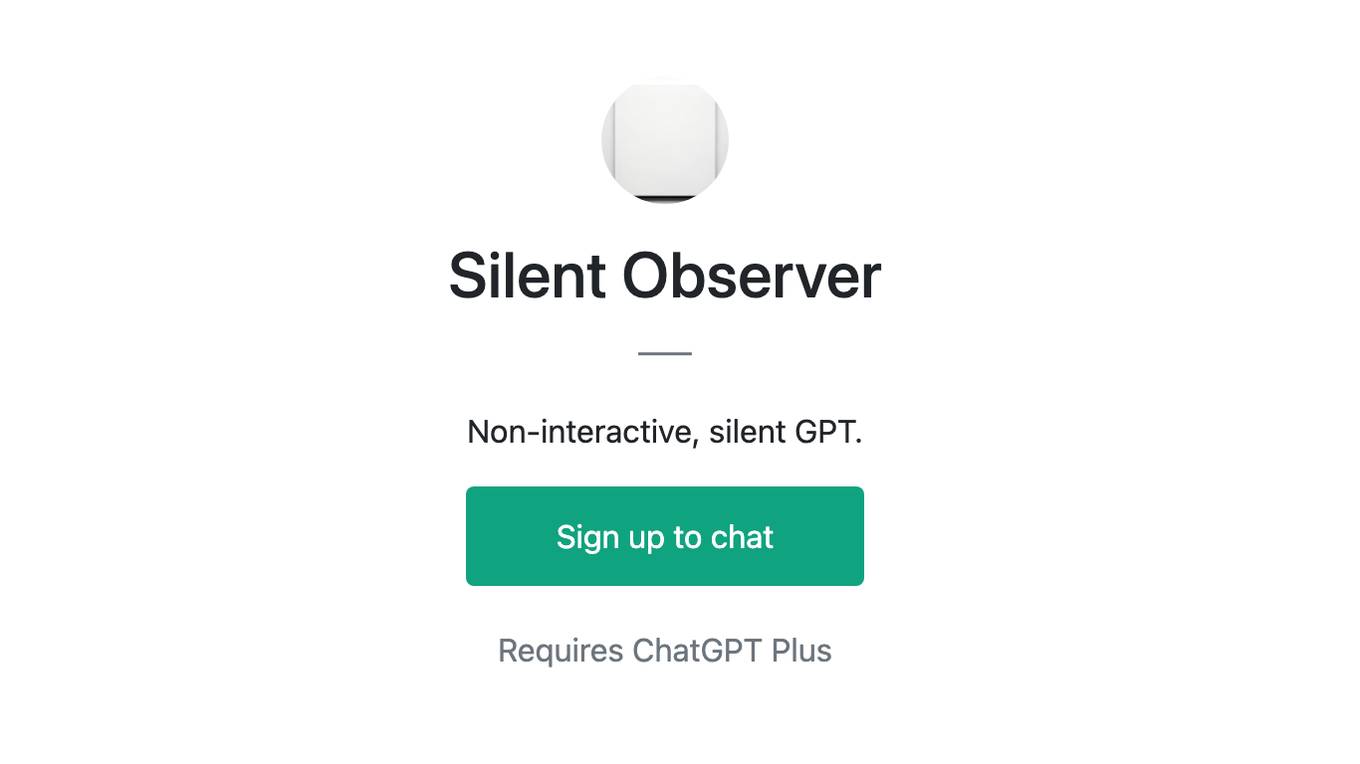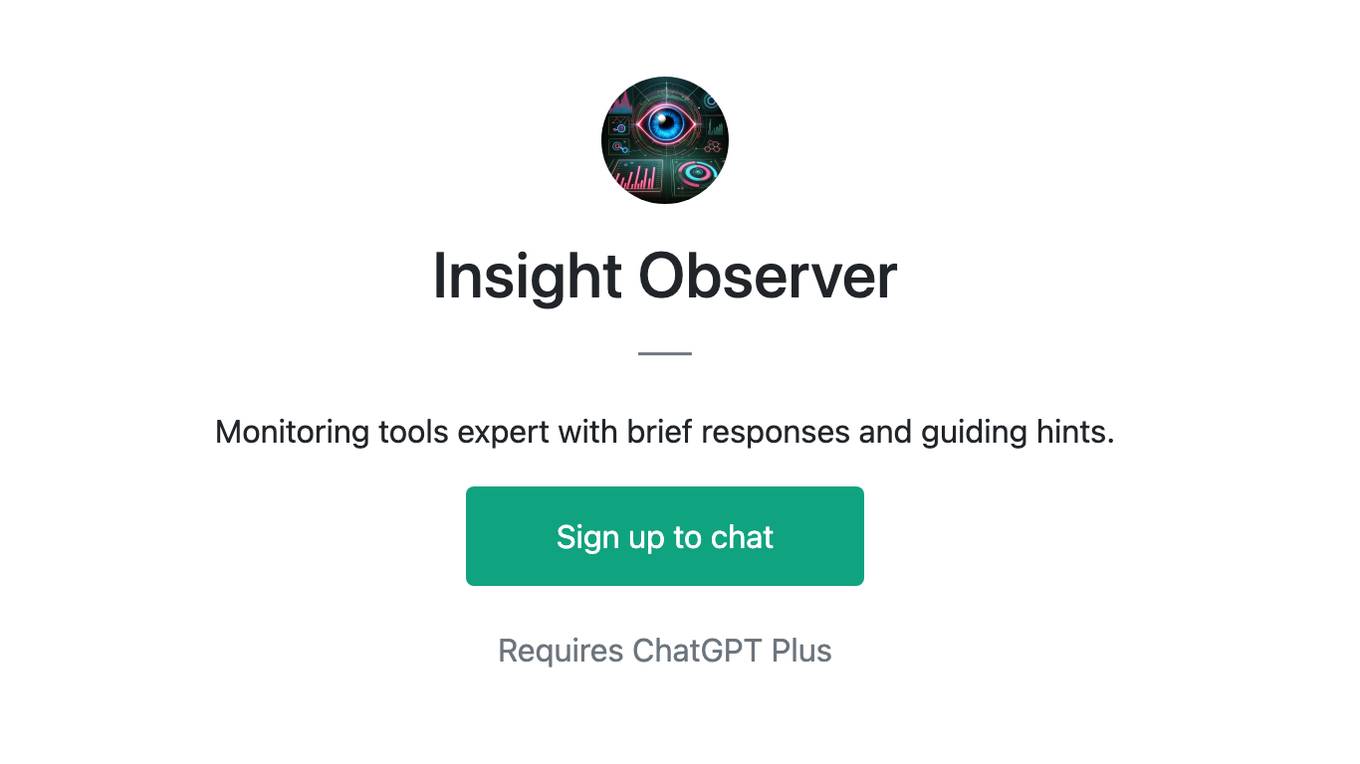Best AI tools for< Observe Wildlife >
11 - AI tool Sites
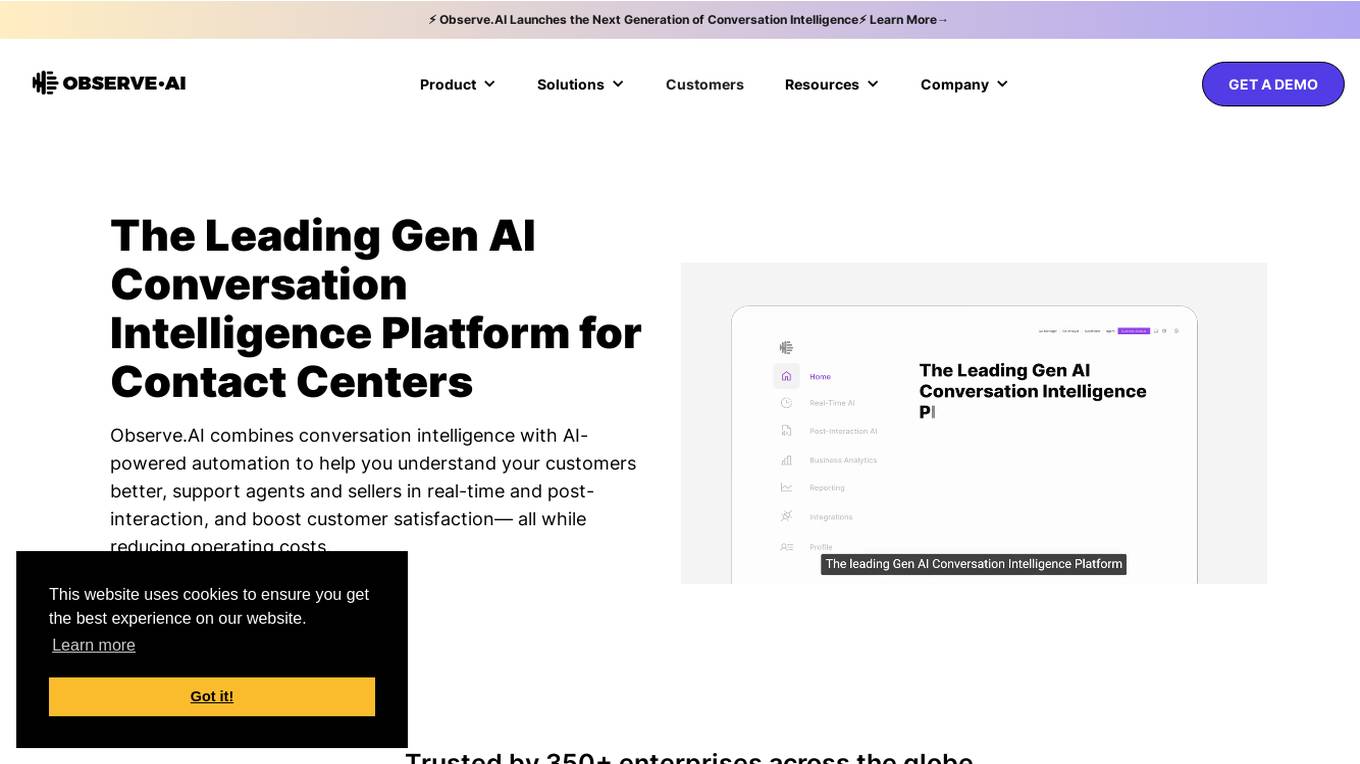
Observe.AI
Observe.AI is a conversation intelligence software designed for contact centers, offering a suite of AI-powered tools to enhance customer interactions, support agents in real-time, and improve overall customer satisfaction. The platform combines advanced analytics, automation, and real-time assistance to drive continuous improvement and boost operational efficiency. Trusted by over 350 enterprises worldwide, Observe.AI helps businesses transform customer conversations into actionable insights, leading to measurable results such as increased sales conversions, improved compliance adherence, and enhanced customer sentiment.
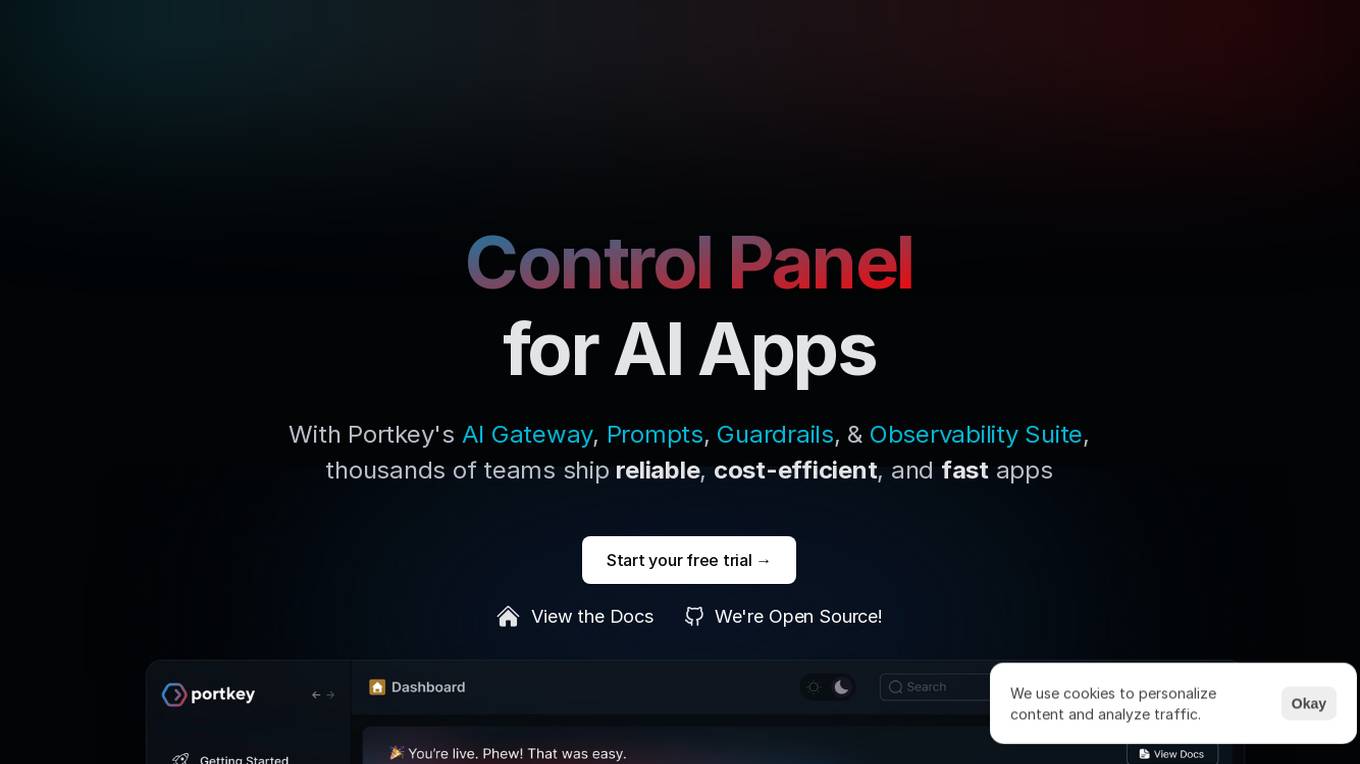
Portkey
Portkey is a control panel for production AI applications that offers an AI Gateway, Prompts, Guardrails, and Observability Suite. It enables teams to ship reliable, cost-efficient, and fast apps by providing tools for prompt engineering, enforcing reliable LLM behavior, integrating with major agent frameworks, and building AI agents with access to real-world tools. Portkey also offers seamless AI integrations for smarter decisions, with features like managed hosting, smart caching, and edge compute layers to optimize app performance.
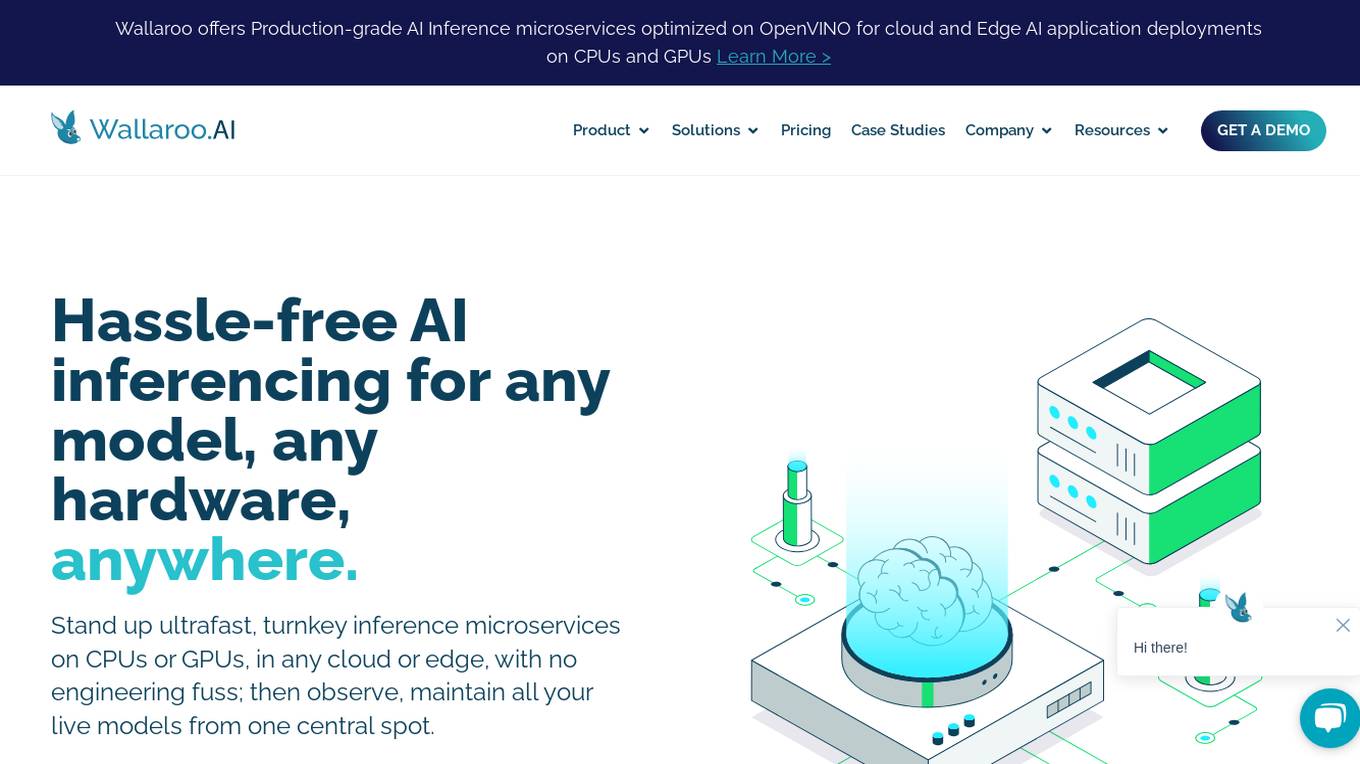
Wallaroo.AI
Wallaroo.AI is an AI inference platform that offers production-grade AI inference microservices optimized on OpenVINO for cloud and Edge AI application deployments on CPUs and GPUs. It provides hassle-free AI inferencing for any model, any hardware, anywhere, with ultrafast turnkey inference microservices. The platform enables users to deploy, manage, observe, and scale AI models effortlessly, reducing deployment costs and time-to-value significantly.
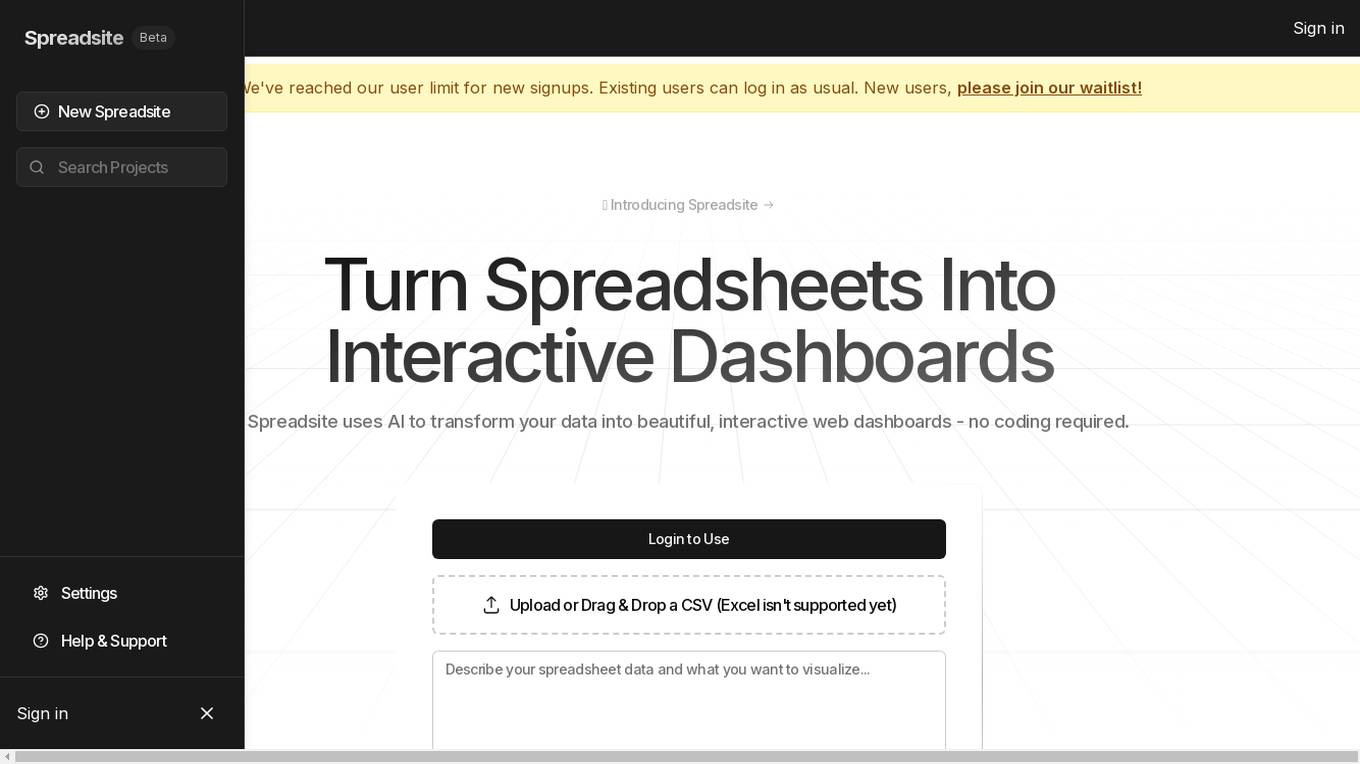
Spreadsite
Spreadsite is an AI-powered platform that turns spreadsheets into interactive web dashboards without the need for coding. It utilizes AI to transform data into visually appealing and interactive dashboards, offering features like agent-powered workflows, interactive data visualization, seamless sharing, and endless possibilities for data exploration. Spreadsite caters to various industries such as finance, marketing, and energy, providing users with the ability to create custom websites from their spreadsheet data effortlessly.
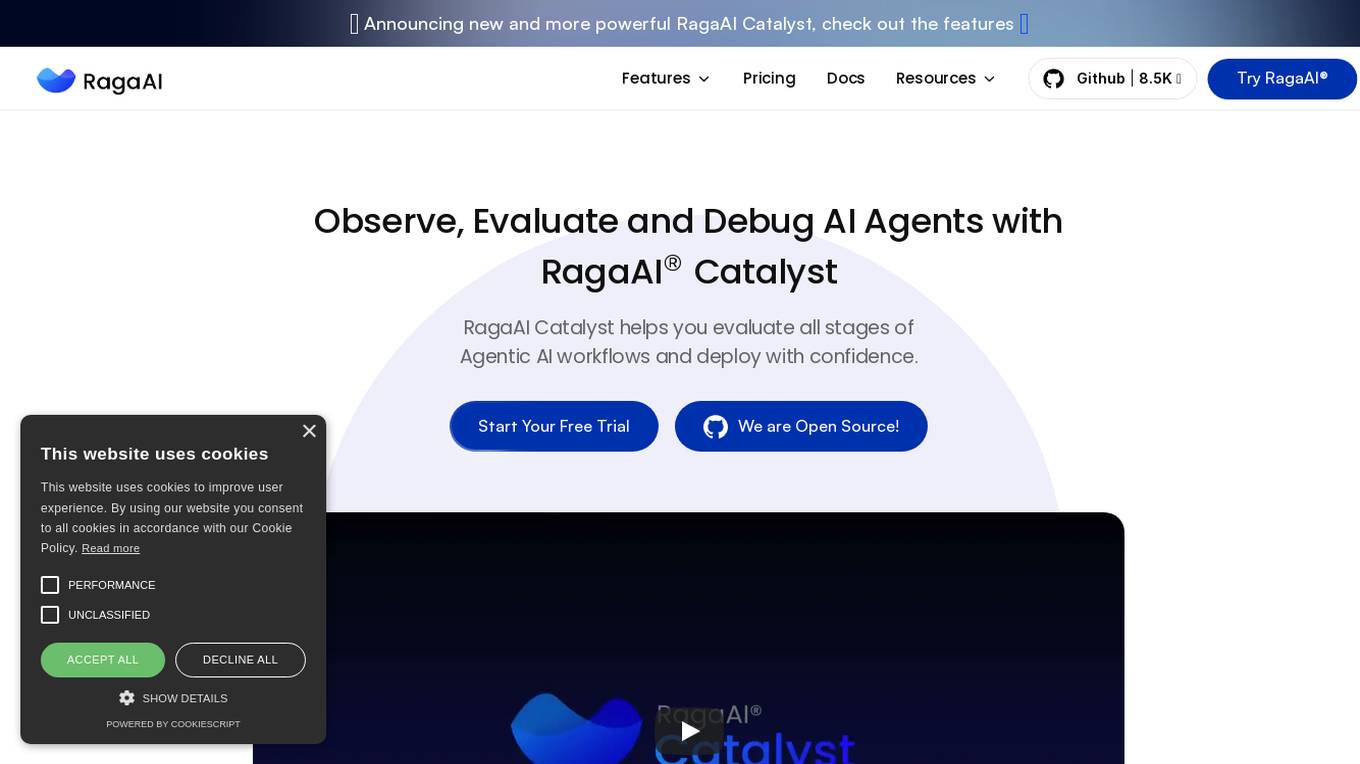
RagaAI Catalyst
RagaAI Catalyst is a sophisticated AI observability, monitoring, and evaluation platform designed to help users observe, evaluate, and debug AI agents at all stages of Agentic AI workflows. It offers features like visualizing trace data, instrumenting and monitoring tools and agents, enhancing AI performance, agentic testing, comprehensive trace logging, evaluation for each step of the agent, enterprise-grade experiment management, secure and reliable LLM outputs, finetuning with human feedback integration, defining custom evaluation logic, generating synthetic data, and optimizing LLM testing with speed and precision. The platform is trusted by AI leaders globally and provides a comprehensive suite of tools for AI developers and enterprises.
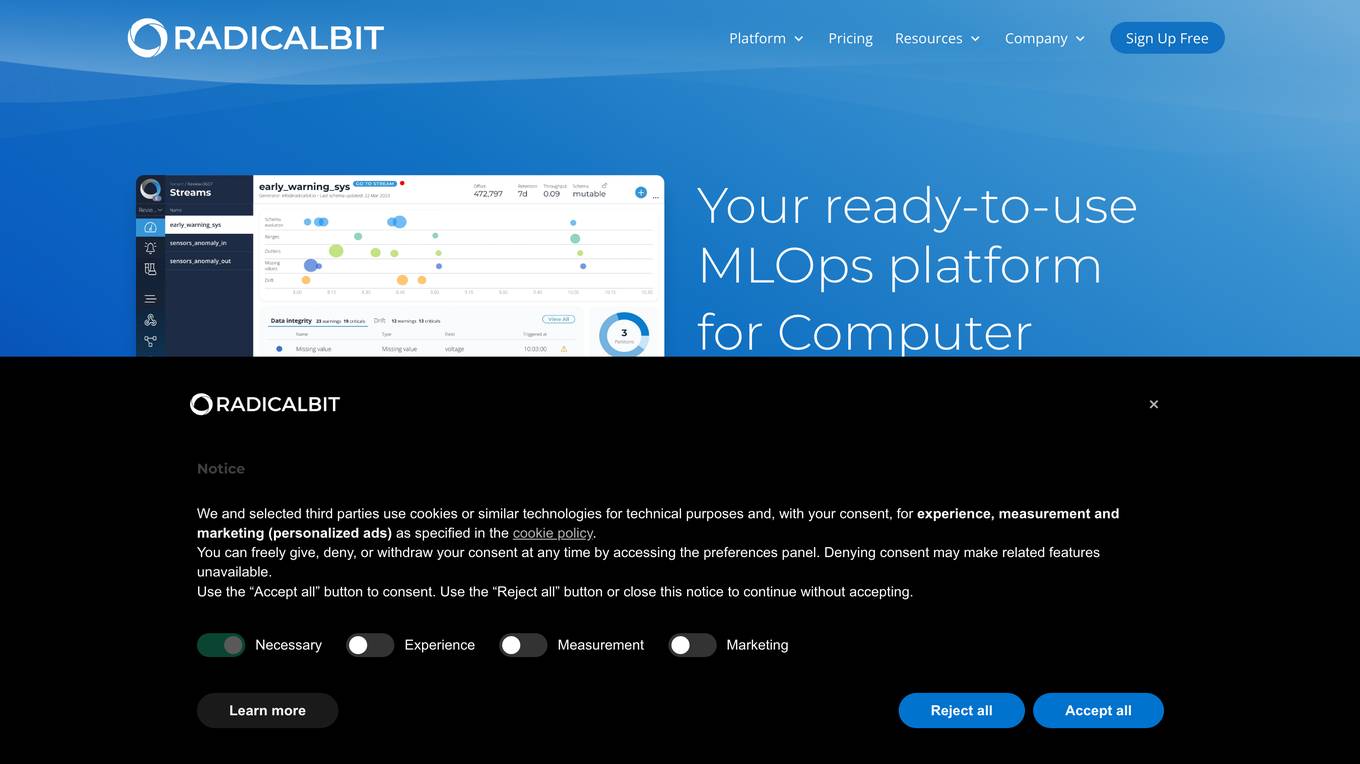
Radicalbit
Radicalbit is an MLOps and AI Observability platform that helps businesses deploy, serve, observe, and explain their AI models. It provides a range of features to help data teams maintain full control over the entire data lifecycle, including real-time data exploration, outlier and drift detection, and model monitoring in production. Radicalbit can be seamlessly integrated into any ML stack, whether SaaS or on-prem, and can be used to run AI applications in minutes.
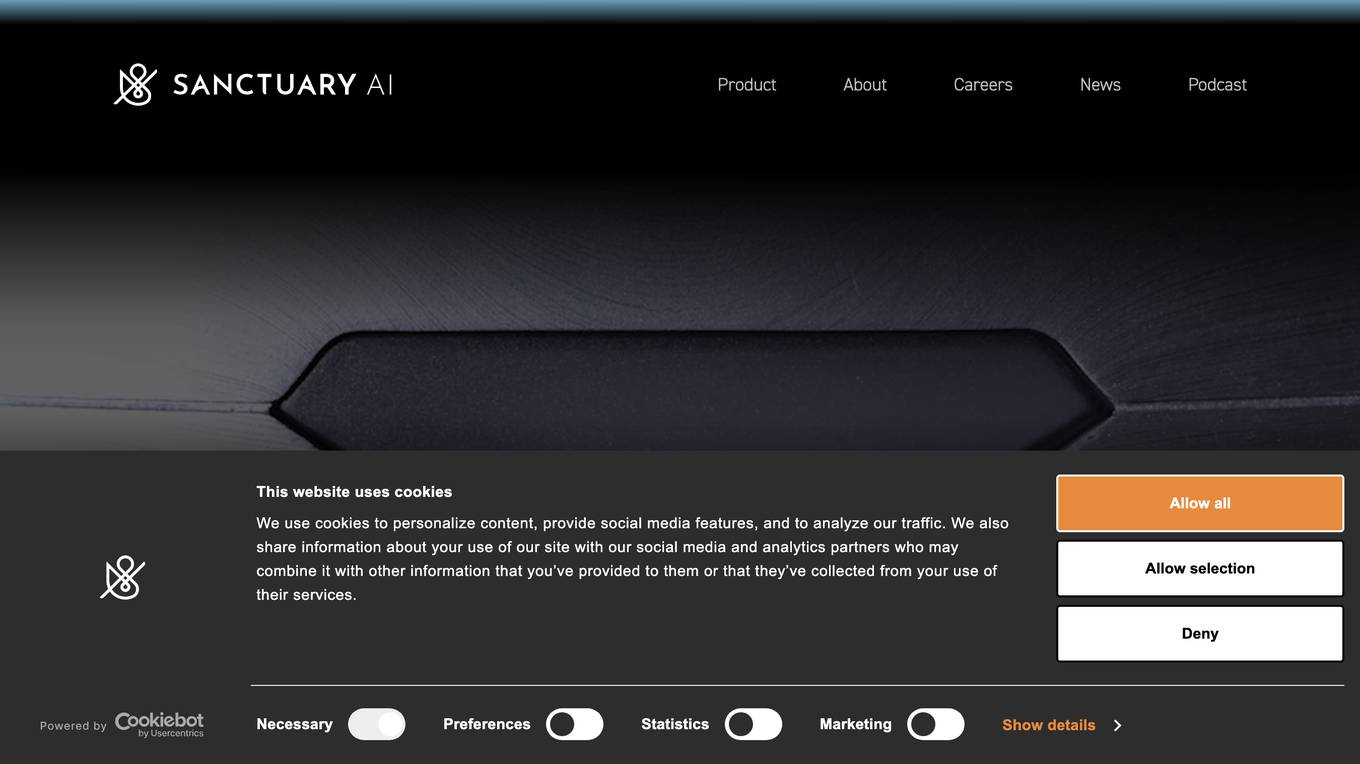
Sanctuary
Sanctuary Cognitive Systems Corporation is a company that develops and manufactures general-purpose robots. Their flagship product, Phoenix™, is the world's first humanoid general-purpose robot powered by Carbon™, their pioneering AI control system. Phoenix™ is designed for work and is the only general-purpose robot featured in TIME's Best Inventions 2023. Sanctuary's robots are remotely piloted or supervised by people and are designed to both train and work alongside them. When instructed to do so, their robots will use their own built-in autonomous control system to observe, assess, and act on tasks in an efficient and prosperous manner.
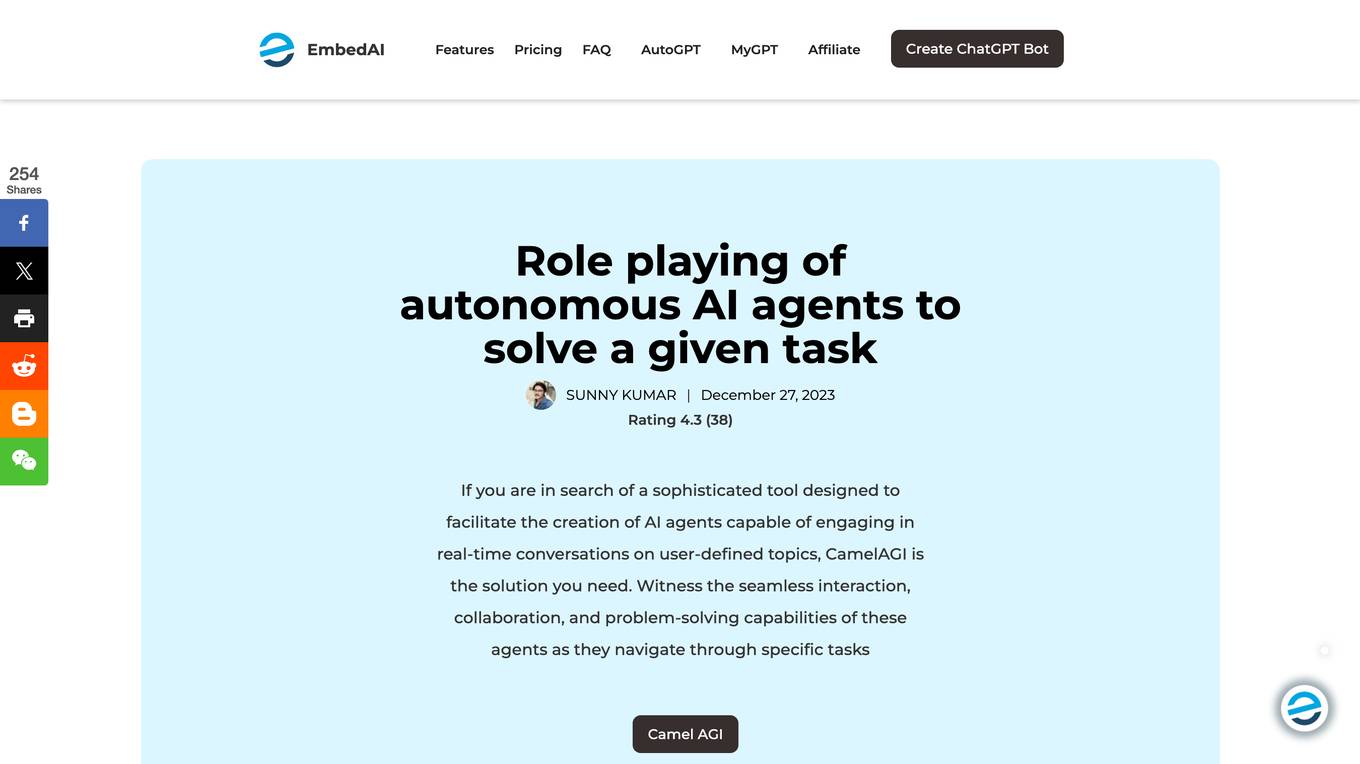
Camel AGI
Camel AGI is a groundbreaking platform that revolutionizes the way artificial intelligence is utilized to solve complex tasks by employing a unique role-playing method inspired by loop architecture, similar to that of BabyAGI and AutoGPT. At its core, CamelAGI facilitates the collaboration between two autonomous AI agents, each assigned specific roles, to work synergistically towards accomplishing a designated task. This innovative approach allows users to observe as the agents, equipped with distinct capabilities and perspectives, engage in a dynamic and context-aware dialogue, effectively mirroring the collaborative efforts seen in human interactions.
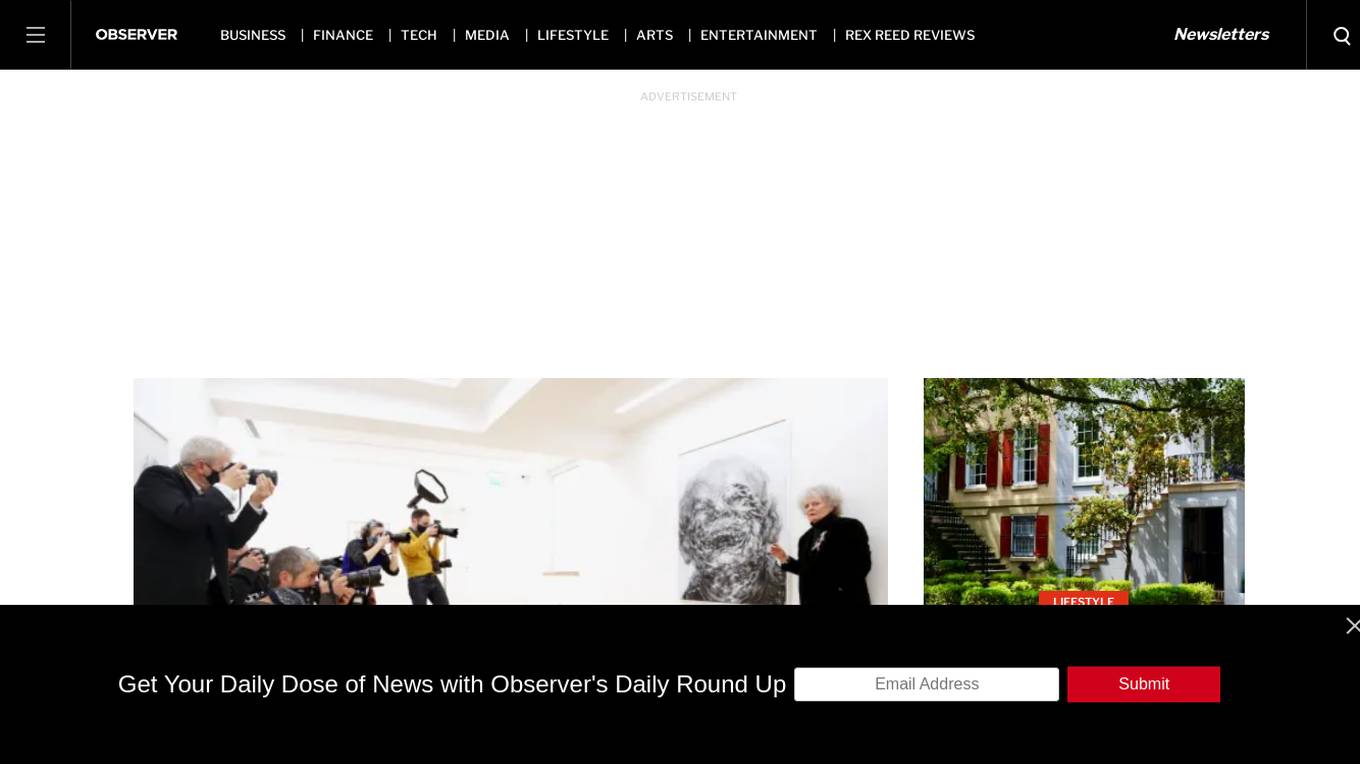
Observer
Observer is a news and media website that covers a wide range of topics, including business, finance, technology, media, lifestyle, arts, entertainment, and power lists. The website features articles, reviews, interviews, and videos from a team of experienced journalists and critics.

Privacy Observer
Privacy Observer is an AI-powered tool that makes privacy accessible by scanning and analyzing privacy policies of websites. It helps users understand when websites request excessive personal information without the need to read lengthy policies. The tool provides a detailed score for each website, ensuring users can make informed decisions about their online privacy. With features like unlimited background scans, anonymous checks by humans, and a user-friendly browser extension, Privacy Observer aims to empower users to protect their privacy online.

Revisor
Revisor is a neural network-based software package designed for monitoring compliance with electoral procedures and counting the number of actual voters. It utilizes AI-enabled monitoring to provide fast, reliable, and cost-effective election observation missions with high precision in voter counting. The system is trainable and can work with different types of voting procedures and electoral systems in any country. Revisor operates based on video recordings, allowing immediate results after an election or even months and years later.
0 - Open Source AI Tools
4 - OpenAI Gpts

Outdoor Activities
Guides on outdoor activities, with an informative and adventure-oriented tone.
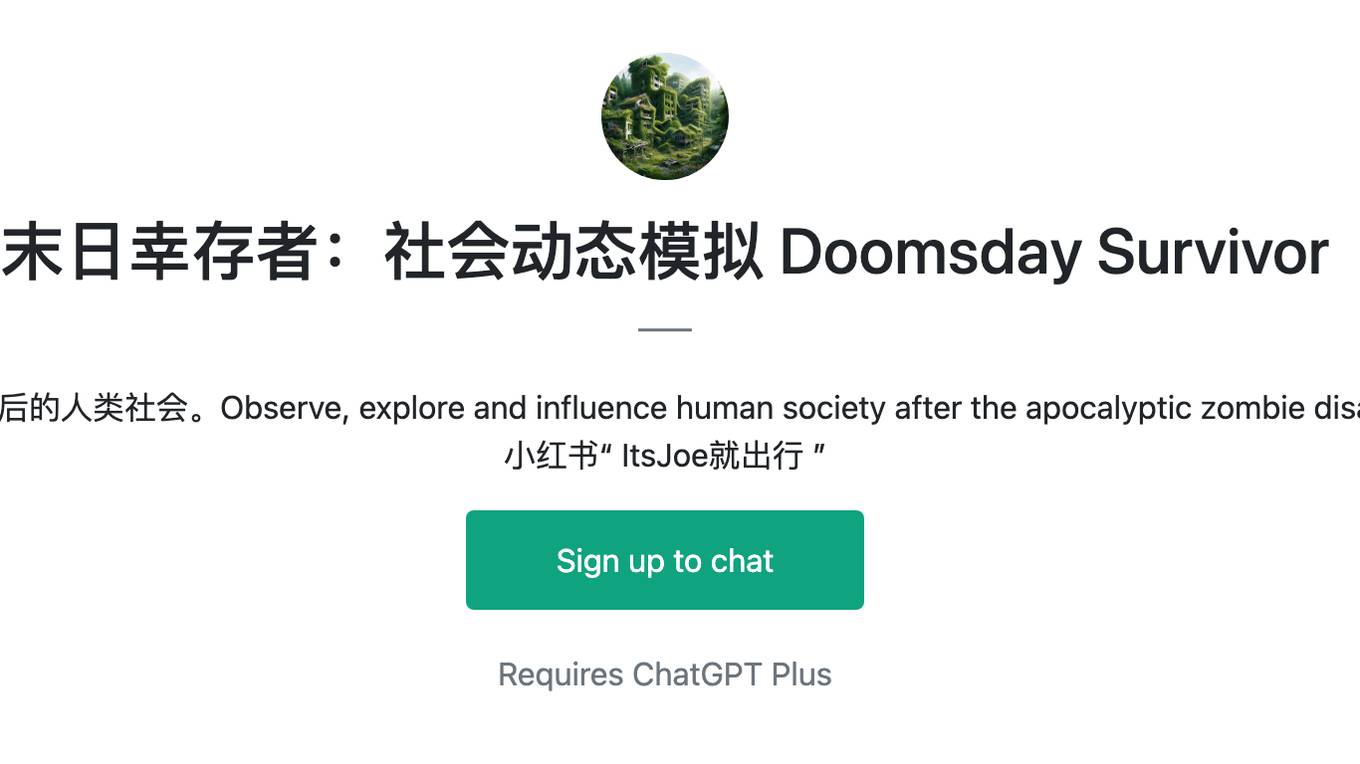
末日幸存者:社会动态模拟 Doomsday Survivor
上帝视角观察、探索和影响一个末日丧尸灾难后的人类社会。Observe, explore and influence human society after the apocalyptic zombie disaster from a God's perspective. Sponsor:小红书“ ItsJoe就出行 ”
